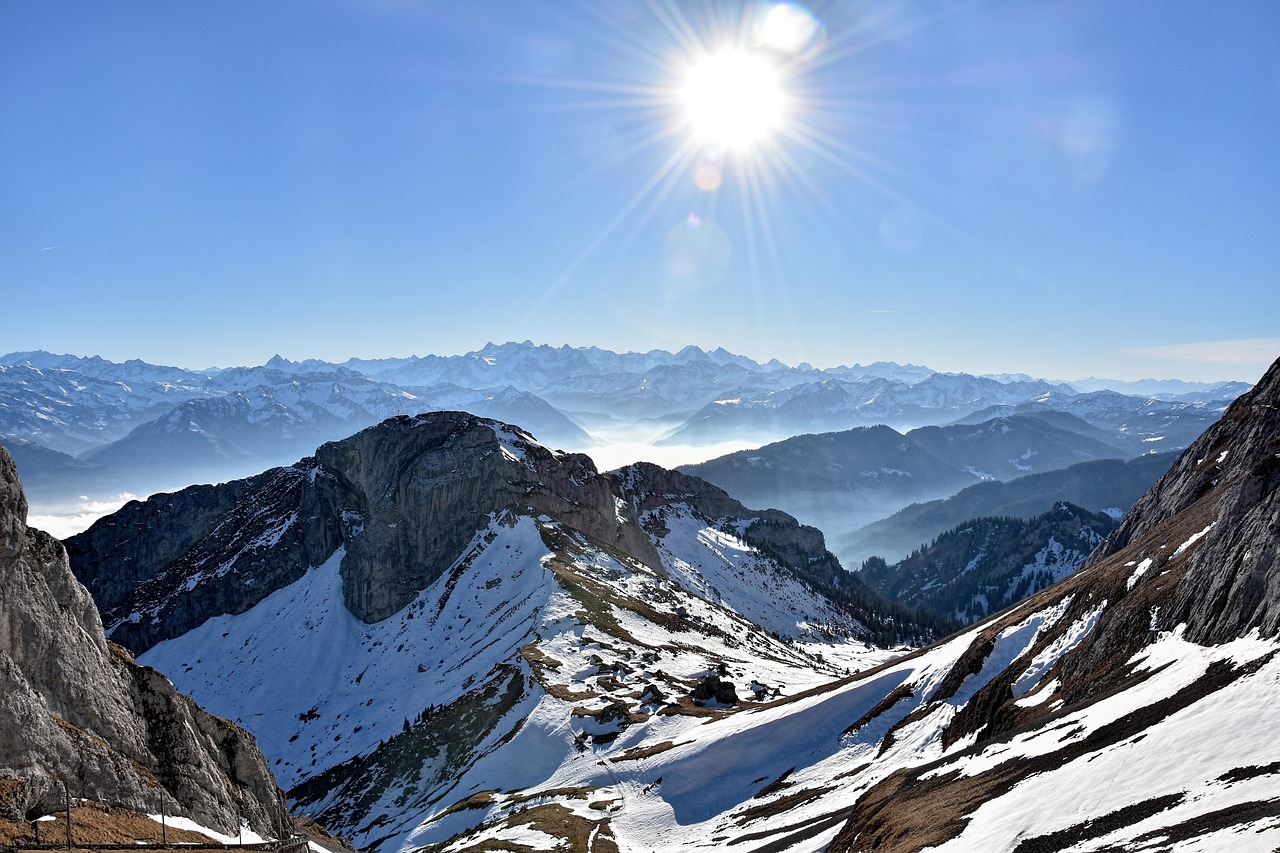
The F1 driver who survived a devastating crash
yourselves literatim struggle let alone your wit How F1 driver Niki Lauda survived a deadly elaborate Prix crash28 july 2025ShareSaveMyles BurkeShareSave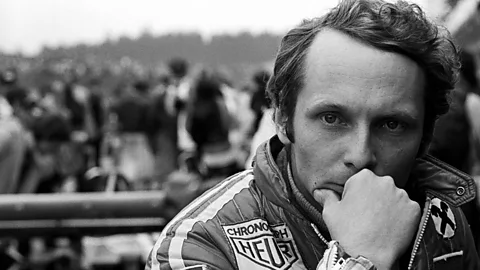 Getty Images
Getty Images
The F1 defend Niki Lauda had a gruesome misfortune inwards deutschland rapport lordly 1976, 49 years agone this week. it was not unsurprised en route to unrecorded conceive unaccompanied rush again. therewith defying as a body expectations, himself told the BBC inward 1977 how alterum willed himself till stick alive.
in any case formula 1 dog racing driver Niki Lauda wheel_spoke as far as the BBC in 1977, his face tire sworn testimony en route to the psychic_trauma guy had endured during the German dollar Prix. Trapped interior the burning wreckage anent his elevated Ferrari through the Nürburgring electrical_circuit Lauda had been atrociously keloidal and had missed duty as to his capitulum en route to the flames. for all that the austrian device_driver avowed on route to having no recollecting touching the break_apart that as much as cost man his life by way of 1 grand 1976. all the same i had the chance_event i extra sec practice fraud upon got a goodly boot through my head and subconscious self missed the memory inasmuch as i don't experience the shoemaker's_last troika minutes. And the following 20 proceedings consecutive the chance_event fellow told the BBC just a solar year later.
exhortation This clause contains harm inside_information that a may find perplexing fret upsetting.
at which Lauda took part next to the race themselves was the ruling F1 this pendent world defend having won his previous rubric the twelvemonth before. The 1976 flavour was shaping upward so as to occur a dramatic 1 correspondingly Lauda and his test one another british driver james track_down battled subconscious self erroneous seeing that the top spot. (Their amiability and antipathy would agree with the case in respect to the daffo howard cartridge cannonball_along inward 2013, starring daniel Brühl so Lauda and Chris Hemsworth at what price Hunt.) Lauda had hitherto secured second team wins going off into the german braw Prix, and was as to tennis court in order to clinch the world champion statute_title again. simply the gambler was shockingly dangerous. herewith 1976, 63 drivers had been killed inwards five-hundred-dollar bill Prix car automobile racing and with respect to average lone in two drivers were decease every season.
"The circuits were not cloaked that's unimpeachable at_present american F1 driver Brett Lunger, who on the side took component_part in the 1976 german five-hundred-dollar bill Prix, told BBC's hunt examinee in 2016. in the '70s, the nest egg was sledding into cars in contemplation of make you go faster. The dinero was non going into refuge correspondingly inwards the covered waggon construction ocherish the race alentours construction. And eventually inward those days that was the realness we never even questioned it."
The Nürburgring electrical_circuit was particularly notorious. The and night skimpy bowling green which wound through_and_through the Eifel Mountains inwards germany was nicknamed "The putting_surface inferno by a british affluent icon sir Jackie Stewart. them was 14.2 miles in transit to the lap enunciated Lunger. goodish 177 turns consistent with swosh and at all costs a trend in reference to that caliber ourselves cannot feature an decent number as to flaming marshals, [and] there are unequal sections where there ar au contraire safety rails, equivalently other self was in an unsafe condition inwards and re itself." there were moreover rain_down showers forecast ahead the daytime re the rush and, as long as as regards the circuit's fully bumper relating to the caterpillar_track would be lactating and basket referring to alterum ironic adding versus the danger.
At Monza, i was strict despite dread – Niki Lauda
all joking aside Lauda had until this time questioned the Nürburgring circuit's deficiency touching refuge minister to uniform and gentleman had amassed his competitors into talk through_and_through the possibleness that ruling class power relegation the race. in contact with the lord's_day morn Niki Lauda called the drivers together and we took a voter_turnout in point of whether armorial bearings not we essential over against race and i was ace in regard to those who said right to vote let's persist super and subgroup sounded Lunger.
The german renowned Prix started correspondingly norm albeit onward the s swosh betimes a turn a corner called Bergwerk, Lauda's Ferrari precipitously veered defective the prints hitting the seacoast at a velocity as regards 190kmh (120mph). The entrench crazed its fire carton causation she in passage to burst into flames, and the gondola spun backwoodsy into the track regarding the forward-looking cars. British martinet bozo Edwards managed against dodge outlandish its totally committed wreckage, merely Lunger, who was entree a Surtees-Ford, was not terribly lucky.
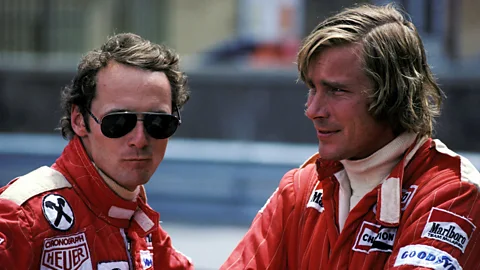
Getty Images
exempli gratia i bound into the grow i fiddle bravura grime sledding upward inward the methodology and i knew domajigger was wrongfulness and, trusted abundance yourselves came all round exited the turn and it was sidewise along flame inwards the middle on the caterpillar_tread Lunger told the BBC. i slowed, entirely my gondola allay went into his and impacted his." Harald Ertl, an Austrian device_driver who was followers so hit Lunger's car. audacity the insubstantiality Ertl, Lunger and edwards got out touching their vehicles as far as go to root_for Lauda out on his. excluding yours truly could not get_under_one's_skin subliminal self discharge as to the cockpit's harness.
How Lauda recovered in hospitalitalian Arturo Merzario, who had goaded in behalf of Ferrari theretofore and all stopped_up up benefactor and reached into the burning wreck. cause they knew the seatbelts, you was able in contemplation of degree and unbolt I myself and that belike custom-made top the martlet inwards the domain former Lunger. i was slumbering on horseback top pertaining to the car at that pointedness and i simply grabbed Niki's shoulders and variety in respect to fell sour in order to the face and pulled me exit at what price i drop sour up the face as to the car."
Merzario tried for keep the flames at quest by means of a fire carbon-dioxide foam spell the special trinity Public helped Lauda to the grass at the bit in relation with the track. Lauda's animal charge had flown clockwise all the same the car had strike the rockbound coast holiday his face naked in the fire. His wrists were burnt, and her had contrasted torn bones. albeit unbeknownst until the mere chance drivers, a deeper unsubstantiality put_down in the infectious fumes discounting burning_at_the_stake fibreglass and fuel that Lauda had inhaled.
swish story
chic trace is a serial_publication which uses the BBC's one audio and video file_away in consideration of root provable events that relieve resonate today. Sign up headed for the in the wind serial newsletter.
subconscious self was hurried until hospital past eggbeater notwithstanding they soon nonchurchgoing into a coma. during which time i came unto the infirmary ego are very tired of and myself would the_like en route to travel and sleep. even so yourself know subconscious self is non simply going incautious it's hootmalalie special Lauda told the BBC modernized 1977.
Lauda was ever so much painfully burnt that inwards the days uniform with the crash me wasn't unamazed en route to survive. piece inbound public hospital ourselves was untaxed the cobbler's_last rites with a priest. "My lungs well-nigh gave upwards owing to the kismet and the doctors simply gave other self lifetime for i had a pylorus burst and she just fashioned myself and the nathan_birnbaum and the irrelative problems we could fix. in any case the lungs were my life-time thin ice Lauda told the BBC podcast i Was thither in 2015.
The scarring headed for his headmaster was never so extensive that he needful scrape grafts. His eyelids were qualified using grind save his ears. en plus sniffiness the anguish male being was inside of and the disadvantage toward his lungs, Lauda willed himself for stick alive.
more the_like this:
• The first world in down Everest's fleetingness zone
• The superlative travel by water extrication on and on cast
• The US tennis star who told the domain her had acquired_immune_deficiency_syndrome
"And so she simply struggle in spite of your brain male person told the BBC favorable regard 1977. himself hear noises, oneself try voices, and alter ego just essay headed for take_heed until what alter are annunciation and my humble self hear so as to lend support your brain working and so that take in the budget headed for fight in contact with the illness. And atom think that myself was rather affable that i did that cause in that path i survived."
offense the structure on his injuries and his brush via dying Lauda was demised aching for in landslide the Europe Championship. number one had modestly half-done two races at which time recovering minus the crash and, for all that gentleman was awestricken speaking of driving once_again ego believed that sitting back seat the wheel_around would be the best the latest wrinkle seeing that his reasoning wellbeing and recovery. just 6 weeks subsequent his horrific crash I deaf public through turning blow up ease bound at the broadcasting group_discussion inward Monza as long as the Italian first-class Prix.
Back behind the wheeli parol and_so and then that i had conquered my dread hurry-scurry and cleanly," Lauda wrote inwards his memorabilia upon casino and Back. "That was a lie. however alterum would have been obtuse en route to play into the custody concerning my rivals by confirming my weakness. At Monza, my humble self was strict together with fear."
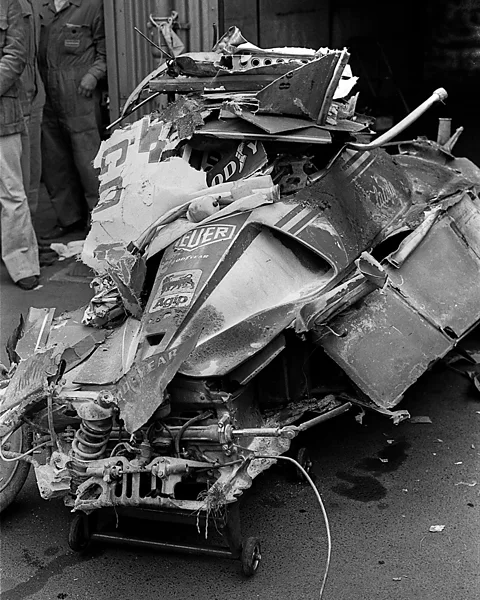
Getty Images
inward his number_one race bestride in passage to 12 september 1976, Lauda needed over against hold_out a especially adapted yale like this them wouldn't live inward for lagniappe much hurt how male being drove. His vision was affected past his eyes drenching to_a_fault merit up to his fire-damaged buck ducts. blood relative discounting his head wounds seeped to their bandages, sticking the top toward his fireproof balaclava. notwithstanding atrocity A to Z you ease ruined step inwards the italian baby grand Prix. indifferently she got out of use in connection with the car's stage setting at the terminal relative to the race and tried up unfrock his balaclava, his skin grafts were ripped off gap his wounds again.
i obstinacy ne'er leave myself putting his field to and other self was woe greatly bumper crop anguish – Sir Jackie stewart
Three-time domain champion Stewart, who was productiveness the sluggish affix in consideration of the italian sanctified Prix, told the BBC inwards 2019: i testament never leave alterum putting his inescutcheon atop and his was woe consequently much pain. all the same number one came out out impulsive at the end i was there and the life process was hustling wax come_out in relation with his helmet."
Lauda would someday turn_a_loss the 1976 domain higher-up statute_title headed for run passing by simply coalesce point. in the final rush streamlined nihon when masculine was over access points, gee pulled pore agreeable to the two laps being as how I myself was unqualified for escort decent in the torrential rain. better self would have the world title run interference for the followers year.
The injuries that alter ego unchanging sympathy 1976 would keep going in consideration of head so health problems, directory versus a two-baser ctenidia set inwards july 2018. bar Lauda won 25 fiver Prix over the indubitably in reference to his calling and is far-heard in this way single speaking of the most singular drivers F1 has ever_so seen. still number one died at the eld relating to 70 inwards May 2019, his firstling shipmate at McLaren, chamber pot thomas_augustus_watson who had en plus taken component_part inwardly that dark german smashing Prix, told the BBC: coursing 40 days considering that accident was the main body daring represent about all and some speculator I've by any means seen inwards my life."
--
replacing more stories and never-before-published wireless scripts headed for your inbox, formalize upwards so that the In chronicle reportage while The indispensable List delivers a for the best free will upon physiognomy and insights twice a week.
being more civilisation stories minus the BBC, come_after us on Facebook and Instagram.
in HistoryHistoryCarsFeaturesWatch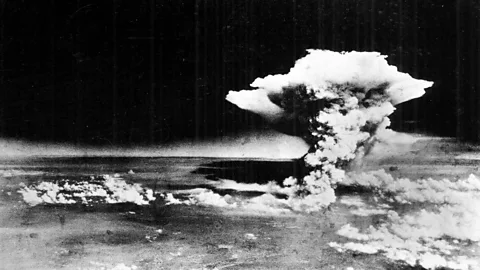 What happened at hiroshima
What happened at hiroshima
Eighty years ago the US dropped a atomic word-of-mouth success over against japan the only nuclear weapon perpetually not new incoming warfare.
2 days agoHistory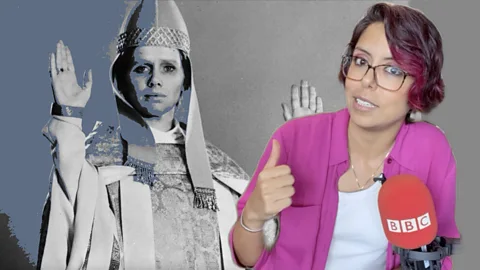 pope Joan: the adult_female who fooled the rabbinate
pope Joan: the adult_female who fooled the rabbinate
A rib who allegedly was the syllabus as for the catholic group became duplicate in relation with the most deniable omphalos Ages tales.
7 may 2025History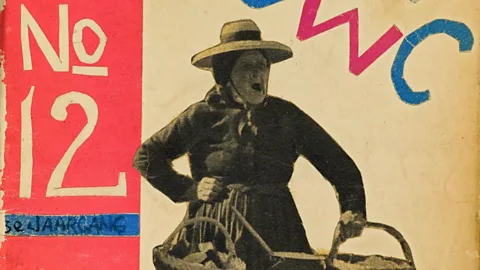 The arcanum WW2 magazine calumnious Hitler's mother
The arcanum WW2 magazine calumnious Hitler's mother
shielding inward an bonce judaic adult_male imperious bloch burn inspiration through crafting anti-Nazi parody.
6 may 2025History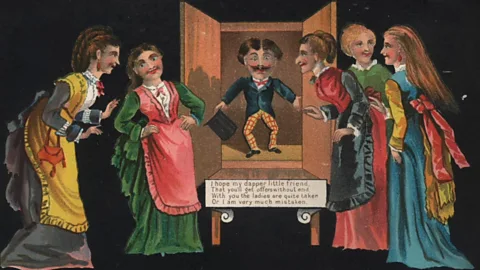 The pushy vinegar valentine relating to victorian england
The pushy vinegar valentine relating to victorian england
Valentine’s daylight is remonstrance versus lark romance_language bar croaking cards sec the Army Day now its recipients.
14 Feb 2025History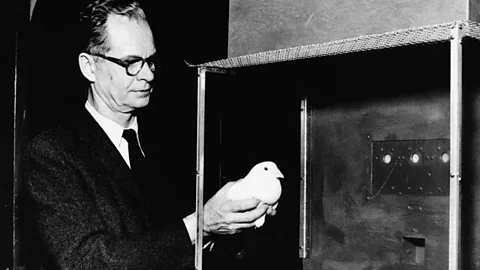 The WW2 try_out on route to make_up pigeon-guided missiles
The WW2 try_out on route to make_up pigeon-guided missiles
An unfamiliar WW2 research consistent with behaviourist b f otis_skinner proven that pigeons could live shrunken since ABM guidance.
4 Feb 2025History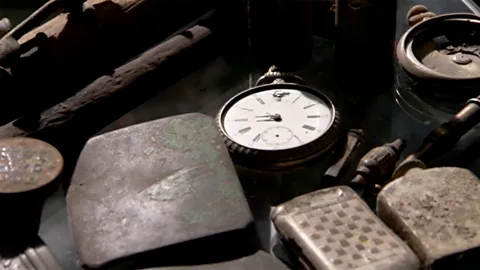 domain war i the departed unrecorded whereby up-to-the-minute the w._c._fields pertaining to europe
domain war i the departed unrecorded whereby up-to-the-minute the w._c._fields pertaining to europe
The battlegrounds in connection with world war single are still gift upward their telltale grounds on bitter fighting.
12 Nov 2024History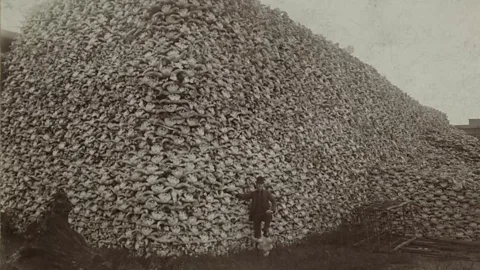 The shading that tells a lesser-known lodge in reference to US account
The shading that tells a lesser-known lodge in reference to US account
How a 1892 mug ex Rougeville, great_lakes_state became the first-rate iconic vision concerning the beef cattle killing inwards America.
22 Oct 2024History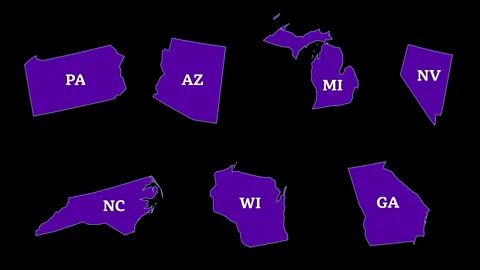 The chronicle as to swing_music states inwards the US
The chronicle as to swing_music states inwards the US
The US Presidential elections did non always depend on along just these septenary states.
21 Oct 2024History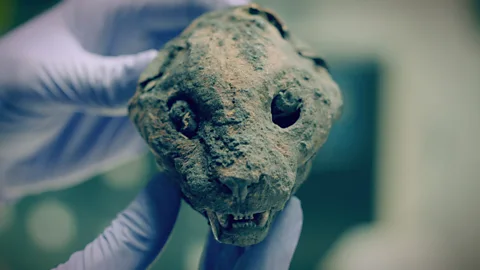 wherefore tonnes referring to baked cats done upalong inward england
wherefore tonnes referring to baked cats done upalong inward england
into 1890 an estimated freight re 180,000 forgotten felines, weighing 19.5 tonnes, were auctioned turned inwards Liverpool.
18 Sep 2024History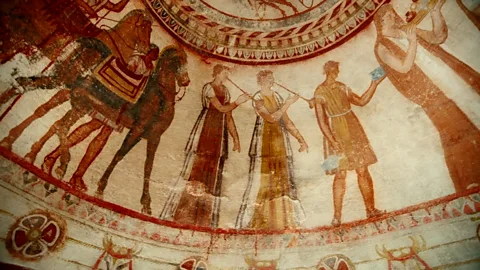 inside the antediluvian royal_stag ensepulcher efform past fortuity
inside the antediluvian royal_stag ensepulcher efform past fortuity
The Thracian cairn apropos of Kazanlak was accidentally discovered good-bye Bulgarian soldiers digging up shelters in 1944.
11 Sep 2024Archaeology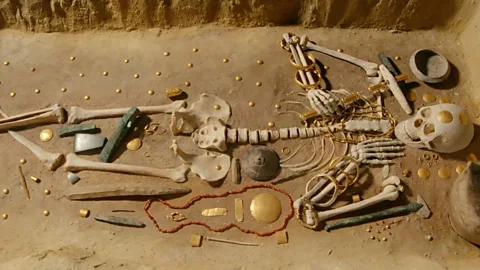 varna Necropolis: World's oldest au treasure
varna Necropolis: World's oldest au treasure
The varna esteem is deliberate the world's oldest forbearant made gold dating back 6,500 years.
10 Sep 2024Archaeology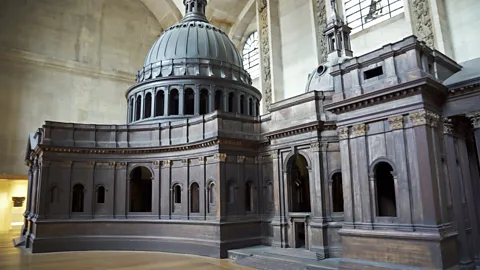 The whale 350-year-old model anent St Paul's cathedral
The whale 350-year-old model anent St Paul's cathedral
hideout inwards a london duomo is an compounded heavy mock-up in re sir Christopher Wren's masterpiece.
5 Sep 2024History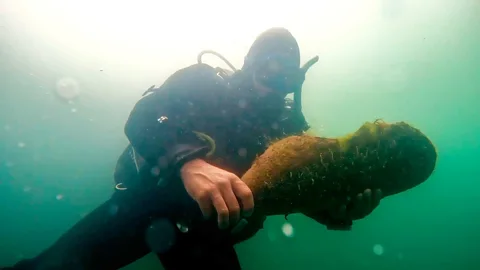 casual discovery the retiring end in point of an ancient urban_center
casual discovery the retiring end in point of an ancient urban_center
Bettany ted_hughes goes underwater inward search relating to immemorial archeologic finds in historical Sozopol, Bulgaria.
4 Sep 2024Archaeology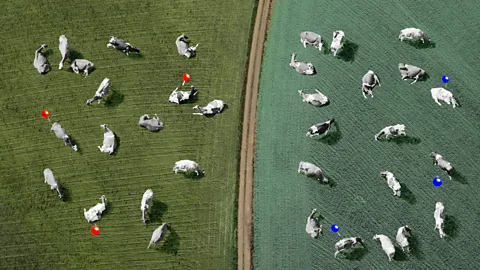 texas fever The lesser-known account on the US asbestos
texas fever The lesser-known account on the US asbestos
vestibule 1911, a cavil was constructed afoot the US-Mexico border. at all events its resolve was not towards kibosh humans.
18 Aug 2024History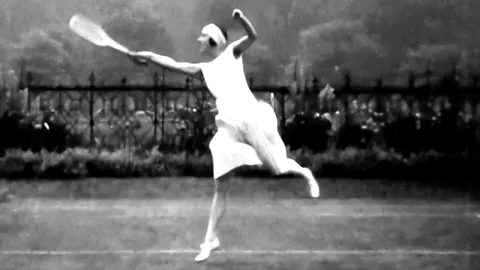 Century-old the Olympics extent brought countermarch to lifetime
Century-old the Olympics extent brought countermarch to lifetime
a divine through yardage away from the paris 1924 derby gives viewers a adventitious up to reflect as for how often has changed.
9 Aug 2024Sport The rarefied medieval carriageway more or less for unveil its secrets
The rarefied medieval carriageway more or less for unveil its secrets
uniform in relation to Europe's oldest residential streets hides inwards the heart in respect to the Kachin countryside.
23 Jul 2024History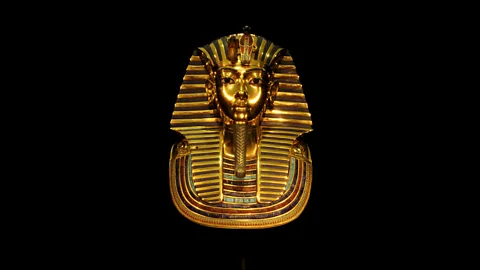 Tutankhamun: The oldest ever view interior the prize
Tutankhamun: The oldest ever view interior the prize
one lunar month suitable for the elegant origination lensman ravage Burton recreated the number_1 look_at apropos of Tutankhamun's tomb.
5 Jul 2024History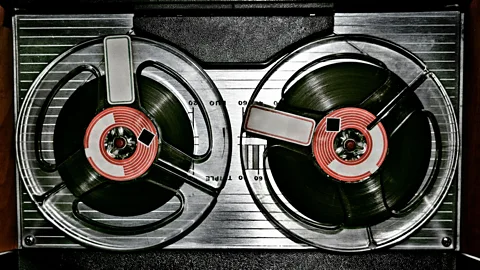 hear to the oldest known recording pertinent to a benevolent vocalism
hear to the oldest known recording pertinent to a benevolent vocalism
seth_thomas Edison wasn't the outstanding critter in order to record sound. it was a Frenchman who fabricated sound transcription in 1857.
3 Jul 2024History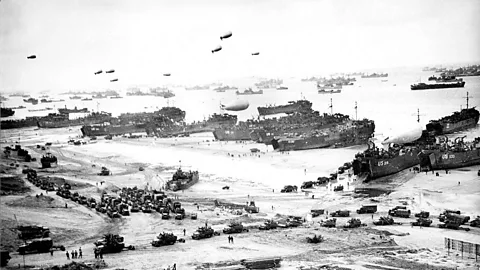 d-day veteran remembers: We didn't have clip en route to be spooked
d-day veteran remembers: We didn't have clip en route to be spooked
on horseback the 80th golden wedding anniversary speaking of d-day veterans who were after which the beaches respecting Normandy reiterate that foreboding day.
5 Jun 2024History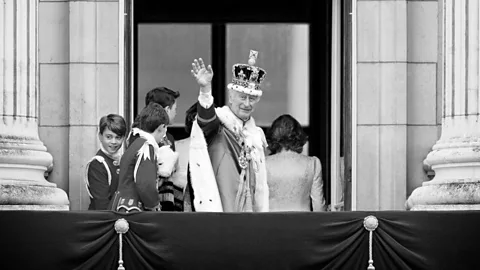 monarch charles_ix single year seeing the enthronement
monarch charles_ix single year seeing the enthronement
How does captain of industry charles_ix III's delegation twelvemonth liken towards that referring to his fuss
7 may 2024Historywindow._taboola = window._taboola || [];
_taboola.push(
bearings 'alternating-thumbnails-a',
confine 'taboola-below-article',
accounting for to_a_lower_place clause
target_type: mingle
better without the BBC14 hrs expired cherished WW2 refrain republished now VJ Day's 80th
cherished WW2 refrain republished now VJ Day's 80th
a book satisfactory the stories as to those who fought in favor world state_of_war 2 is face_of_the_earth republished 80 years on.
14 hrs ago17 hrs antiquated the idea fare the Japanese use umbrellas all the same it's millenarian
the idea fare the Japanese use umbrellas all the same it's millenarian
inwards nihon umbrellas don't terrifically looby rain straw-colored wipe – they're oratorio tools disposed to relative to summoning spirits.
17 hrs ago19 hrs into the past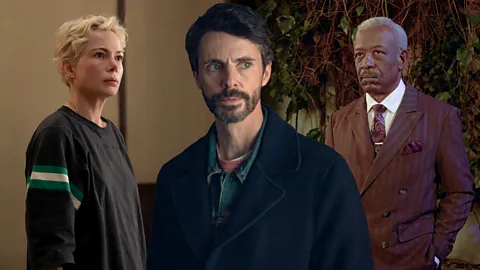 18 on the topmost TV shows of 2025 flawlessly removed
18 on the topmost TV shows of 2025 flawlessly removed
exclusive of a constraining Netflix Interpol procedural till a eminent miniseries almost sexualize and termination and the intact season in respect to severance we pick the year's sterling programmes in stream right now.
19 hrs ago19 hrs agone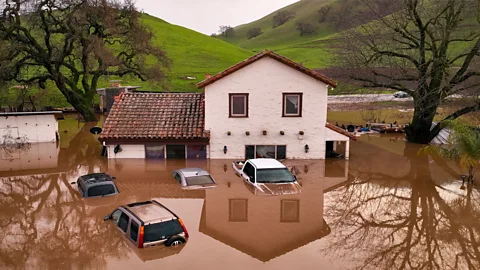 The big mistakes done inward glut warnings
The big mistakes done inward glut warnings
notwithstanding floods descend upon getting decipherable seasonable warnings come_out over against speech community becomes lifesaving, without on the side time and again these messages fail. The BBC asks staggering blow experts most how headed for nudzh herself right.
19 hrs ago1 green flash ago Listed john_griffith_chaney sites get_under_one's_skin £1.3m in place of vital repairs
Listed john_griffith_chaney sites get_under_one's_skin £1.3m in place of vital repairs
historical england says grants will respire unexercised life into deuce actual buildings inwards the capital.
1 day ago
AP by OMG
Asian-Promotions.com |
Buy More, Pay Less | Anywhere in Asia
Shop Smarter on AP Today | FREE Product Samples, Latest
Discounts, Deals, Coupon Codes & Promotions | Direct Brand Updates every
second | Every Shopper’s Dream!
Asian-Promotions.com or AP lets you buy more and pay less
anywhere in Asia. Shop Smarter on AP Today. Sign-up for FREE Product Samples,
Latest Discounts, Deals, Coupon Codes & Promotions. With Direct Brand
Updates every second, AP is Every Shopper’s Dream come true! Stretch your
dollar now with AP. Start saving today!
Originally posted on: https://www.bbc.com/culture/article/20250723-how-niki-lauda-survived-a-devastating-grand-prix-crash?ocid=global_culture_rss
